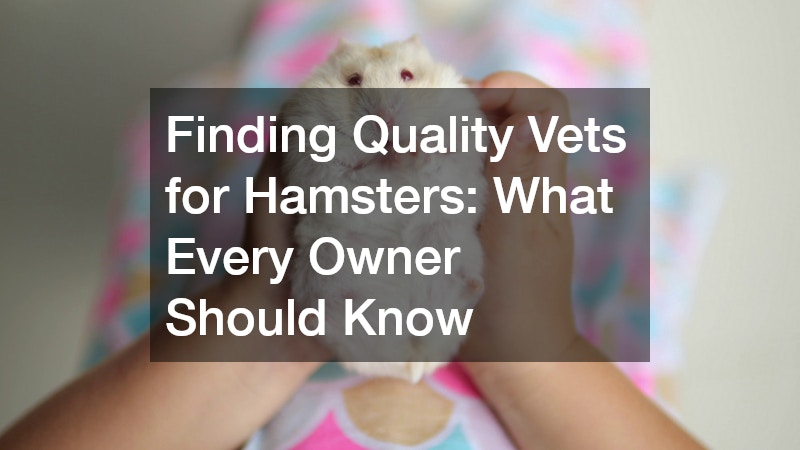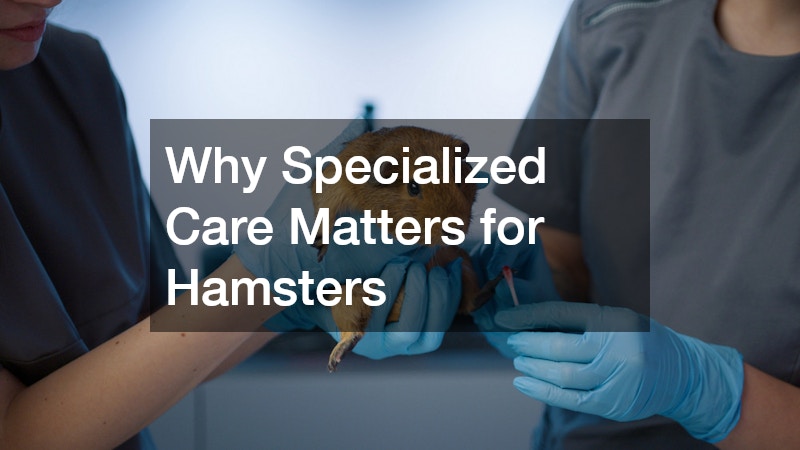
Finding Quality Vets for Hamsters: What Every Owner Should Know
Hamsters may be tiny, but their healthcare needs are just as important as those of any other pet. Despite their small size, hamsters can experience a wide range of health issues that require prompt and specialized veterinary attention. Many pet owners are surprised to learn that hamsters are often classified as exotic pets in the veterinary world, which means they may not receive the same attention or expertise as more common animals like dogs or cats. This can create significant barriers to receiving timely and effective care, especially in emergencies.
Because of their delicate anatomy and tendency to hide symptoms until an illness becomes severe, it’s crucial that hamster owners are proactive in seeking appropriate veterinary services. Finding a clinic that understands the specific medical needs of hamsters and has experience treating them can make a dramatic difference in outcomes. From choosing the right local veterinarian to knowing where to go during a crisis, understanding your options is key to being a responsible pet owner.
In this comprehensive guide, we’ll break down everything you need to know about locating and evaluating quality vets for hamsters. We’ll cover what signs of illness to watch for, how to evaluate local veterinary clinics, what to do in emergencies, and how to ensure your hamster gets the best routine and preventative care. We’ll also explore services like grooming, emergency care, and the importance of proper veterinary waste disposal. Whether you’re a new hamster owner or just looking to improve your pet’s healthcare, this guide is your go-to resource for making informed, confident decisions.
Why Specialized Care Matters for Hamsters
Many vet offices consider hamsters exotic pets, meaning not every veterinarian is trained to treat them. Their unique anatomy, rapid metabolism, and stress sensitivity demand a specialized approach. A local veterinarian who deals mostly with cats and dogs might not be fully equipped to diagnose or treat hamster-specific conditions like cheek pouch abscesses or wet tail. These issues, if left untreated, can escalate quickly due to a hamster’s small size and delicate system. It’s essential to seek out professionals affiliated with a veterinary relief staffing agency or who have proven experience with exotic pets. Asking about the vet’s training and past hamster cases can provide reassurance about their expertise. Moreover, veterinarians who routinely treat exotic animals are more likely to stay up to date on the latest diagnostic and treatment approaches, ensuring your pet receives modern, evidence-based care. A strong understanding of hamster physiology also allows the vet to tailor anesthesia and medication dosages more safely.
Signs Your Hamster Needs Medical Attention
Recognizing when your hamster is unwell can be challenging, but several signs should prompt immediate attention. Sudden weight loss, lethargy, labored breathing, and unusual lumps may all indicate serious health problems. Diarrhea, difficulty moving, or signs of back pain also require prompt evaluation. Changes in appetite, increased aggression, or excessive sleeping may also signal that something is wrong. Hamsters are prey animals and often hide signs of illness, so subtle behavioral changes should not be ignored. If you notice any of these symptoms, seeking help from a local veterinary clinic or an animal emergency clinic is critical, especially if your usual vet is unavailable. Delays in treatment can worsen the prognosis and reduce recovery chances. It’s important to document symptoms as soon as they arise and communicate clearly with the vet to help them make a swift and accurate diagnosis.
How to Find a Local Veterinarian for Your Hamster
To find a suitable vet, start by researching exotic pet vets or small mammal veterinarians in your area. Both for standard scheduled visits, as well as walk in clinics. It’s important to call ahead and confirm that the clinic treats hamsters, as not all local veterinarians are trained to care for them. Ask specific questions about their experience and capabilities, such as whether they accept walk-in clinics or offer diagnostic tools for small pets. Inquire if the staff has handled hamsters before and how frequently they treat small rodents. Reviews from other hamster owners can offer valuable insights into the quality of care provided. If your area lacks options, consider traveling to a reputable clinic or contacting a veterinary relief staffing agency for referrals. Many specialized clinics are willing to offer telehealth consultations or collaborate with general vet offices to guide care. It’s also beneficial to explore social media groups or forums dedicated to hamster care for word-of-mouth recommendations from experienced pet owners.
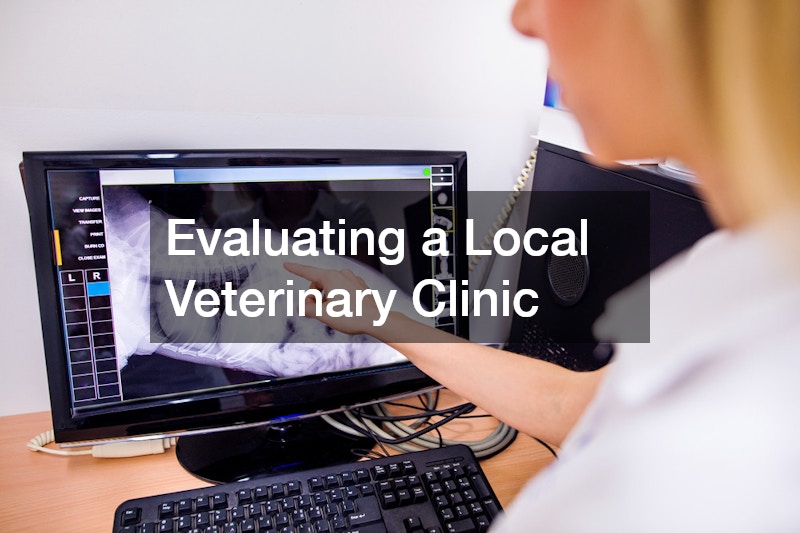
Evaluating a Local Veterinary Clinic
A high-quality local veterinary clinic will maintain a clean, calm, and organized environment, which is especially important for the well-being of easily stressed hamsters. Staff should be knowledgeable about hamster behavior and dietary needs and know how to handle them properly. Look for clinics that are equipped with the right tools to examine and treat small animals. Ask about in-house diagnostic capabilities like X-rays or small-scale surgical equipment suited for rodents. Additionally, inquire about their practices for veterinary waste disposal, as proper handling of medical waste is essential for maintaining a safe and professional setting. Clinics that prioritize cleanliness and efficiency are often more reliable when treating delicate animals like hamsters. Facilities that segregate exotic pet treatment areas from larger animals can reduce stress and the risk of cross-contamination. Transparent pricing, accessible communication, and emergency protocols also reflect a well-managed and hamster-friendly clinic.
Emergency Care Options: Animal Emergency Clinic vs. Pet Urgent Care
When faced with a sudden illness or injury, knowing your emergency care options can save your hamster’s life. An animal emergency clinic typically offers 24/7 care and is staffed with specialists who can handle surgeries and critical situations involving exotic pets. These facilities often have advanced equipment and the capacity to manage severe infections or trauma. In contrast, pet urgent care centers are designed for less severe issues and usually operate during extended hours rather than around the clock. They are ideal for minor injuries, digestive upsets, or when your hamster appears off but not in immediate danger. It’s wise to locate the nearest facility that treats hamsters and save their contact details for quick reference in case of an emergency. Understanding the differences in capabilities between emergency clinics and urgent care centers helps you make informed decisions during high-stress moments. If possible, schedule a non-emergency visit to familiarize yourself with the facility’s staff and setup.
Preventive Care and Routine Checkups
Preventive care plays a major role in maintaining your hamster’s health. Scheduling annual checkups with a vet who specializes in exotics can help detect issues early, such as dental problems, skin conditions, or mobility concerns. A thorough exam often includes checking weight, teeth, fur condition, and overall posture to identify signs of discomfort or back pain. During these visits, your vet can discuss proper nutrition, habitat maintenance, and enrichment activities tailored to your hamster’s breed. Preventative care also allows your vet to monitor ongoing conditions and provide vaccinations or parasite prevention if necessary. These regular checkups establish a medical history that becomes valuable in emergencies. Building a long-term relationship with a trusted vet ensures continuity of care and better outcomes for chronic conditions. Clinics that offer bundled wellness packages may provide affordable and consistent healthcare over the lifespan of your hamster.
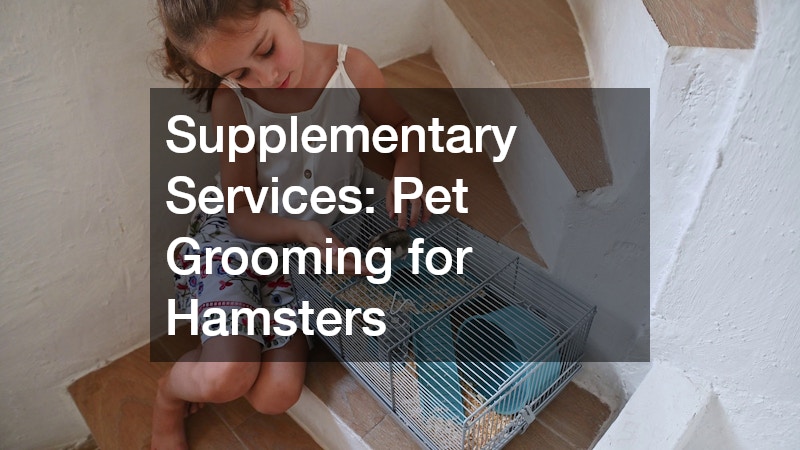
Supplementary Services: Pet Grooming for Hamsters
Although hamsters groom themselves regularly, certain circumstances may require additional grooming care. Long-haired breeds like Syrian hamsters can develop tangles or mats that need to be professionally addressed. Pet grooming services provided through a veterinary clinic can also help identify skin infections, mites, or overgrown nails and teeth before they become problematic. Grooming appointments can be combined with wellness exams, ensuring a full checkup in one visit. Some clinics may also offer advice on at-home grooming techniques or sell specialized brushes and products for small pets. If the clinic doesn’t offer grooming, ask for recommendations for specialists experienced in caring for small animals. Clean and well-groomed fur can also prevent secondary skin infections and make it easier to spot early signs of illness. Grooming may also include gentle ear cleaning and trimming to improve your hamster’s overall hygiene and comfort.
Understanding the Importance of Veterinary Waste Disposal
Veterinary waste disposal is a behind-the-scenes operation that speaks volumes about a clinic’s professionalism. Improper disposal of medical waste, particularly from exotic pet treatments, can pose risks to both staff and patients. Clinics that handle small pets and use specialized medications should follow strict waste management protocols. Responsible clinics separate hazardous materials from general waste and adhere to local environmental regulations. Proper disposal also helps prevent contamination, disease spread, and improper drug handling. Asking about waste disposal practices during a tour or consultation shows that you are a conscientious pet owner invested in quality care. Facilities that use licensed waste removal services and provide staff training on disposal safety are generally more trustworthy. Efficient waste management is crucial in clinics with high exotic pet traffic, as cross-species contamination can have serious consequences.
What to Do When Your Regular Vet Is Unavailable
Sometimes your usual local veterinarian may be closed, booked, or on leave. In such cases, it’s helpful to know which vet offices partner with a veterinary relief staffing agency to provide temporary but qualified care. These agencies can place professionals with the expertise to handle exotic pets like hamsters. You might also consider registering with a secondary clinic or one that accepts walk-in patients, particularly those with experience in small mammal care. Keep a list of alternative providers in your area, along with contact numbers and operating hours. In emergencies, an animal emergency clinic should always be your go-to option if your primary provider is inaccessible. Planning ensures your hamster can get care without delay, reducing stress and improving outcomes. Some clinics also offer after-hours consultations or telemedicine, which can be a lifesaver in non-critical but concerning situations.
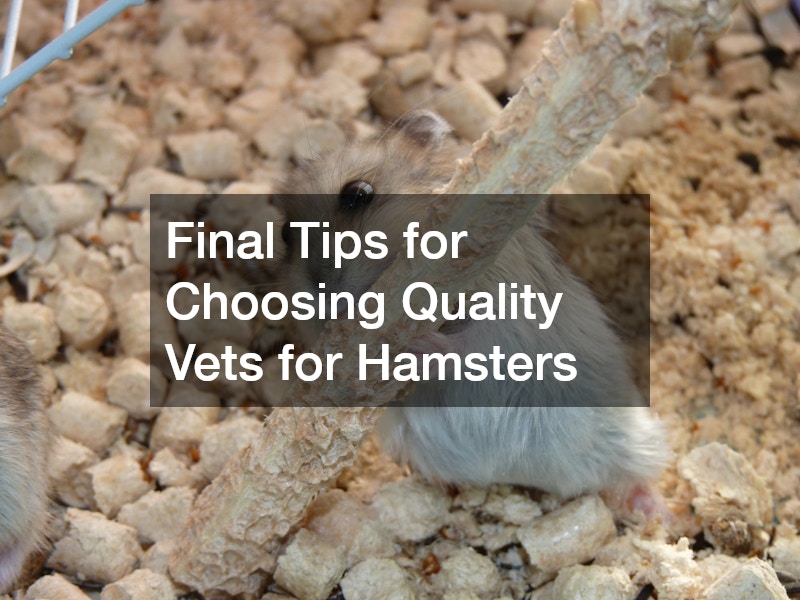
Final Tips for Choosing Quality Vets for Hamsters
Choosing the right vet involves more than just finding the closest clinic. You need someone with real experience in hamster care who is familiar with their unique health needs. Always have an emergency plan in place, including the location and number of the nearest animal emergency clinic. Pay close attention to signs of discomfort, such as back pain or unusual behavior, and make sure the clinic provides or can recommend grooming services and handles waste disposal responsibly. It’s also important to choose a clinic that’s transparent about its procedures and communicates clearly. Whenever possible, visit the clinic in person to evaluate the facility and staff before making your decision. Asking the right questions, verifying credentials, and building a long-term relationship with your vet can contribute significantly to your hamster’s well-being. A trusted veterinarian becomes not just a caregiver, but a partner in your hamster’s lifelong health journey.
Conclusion
As a hamster owner, investing the time to find the right veterinary care can significantly improve your pet’s quality of life and longevity. Whether you’re managing an urgent health issue or simply looking for a routine checkup, knowing where to turn and what to look for makes all the difference. The key is prioritizing experience with small mammals, maintaining a network of reliable local resources, including pet urgent care and emergency clinics, and being proactive in your hamster’s routine wellness. Don’t hesitate to ask questions and tour the facilities to ensure your furry friend will receive compassionate and competent care. With the proper vet on your side, you’ll have peace of mind knowing your hamster is in the best possible hands throughout every stage of life. Staying informed about veterinary waste disposal practices, pet grooming options, and how to access emergency services will prepare you to meet your hamster’s needs confidently. Your dedication and attention to detail can make a meaningful difference in both everyday health and urgent care situations.
In addition, being prepared for unexpected events, such as your regular vet being unavailable, means you’re already one step ahead in safeguarding your pet’s health. Consider compiling a list of emergency contacts, including nearby vet offices, an animal emergency clinic, and even a veterinary relief staffing agency that services your region. By keeping this information easily accessible, you can save precious time during a crisis. Remember, your hamster depends entirely on you for its well-being. The care, knowledge, and attention you provide can add not only years to its life but comfort and security to its everyday life. Prioritize preventative care, seek expert guidance, and don’t underestimate the value of compassionate, informed veterinary support tailored specifically for these small yet spirited companions.
